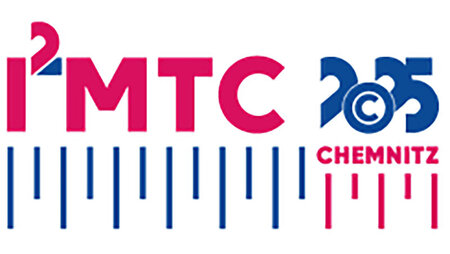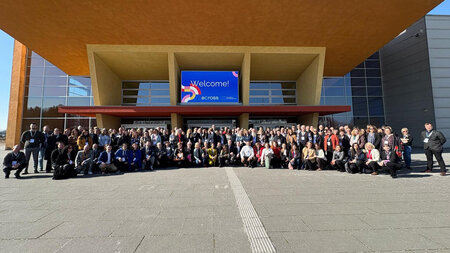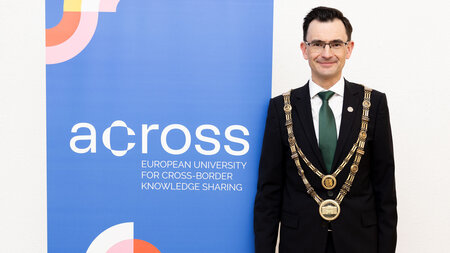A Cross-Cutting Issue Like No Other
Eleven questions for Jun.-Prof. Dr. Christian Papsdorf, Professor of Junior Professorship in Sociology of Technology with Specialization in Internet and New Media since May 2015
-

"Sociology of Technology deals with the social significance of technology and is particularly interested in the use of technology and the social consequences. I dedicate myself to this, and other issues with the example of the Internet," explains Jun.-Prof. Dr. Christian Papsdorf. Photo: Steve Conrad
Jun.-Prof. Dr. Christian Papsdorf (31) has held the Junior Professorship in Sociology of Technology with Specialization in Internet and New Media since May 2015. In eleven responses he gives “University News“ readers an insight into his professional background, scientific objectives and activities in Chemnitz.
What is actually meant by “Sociology of Technology with Specialization in Internet and New Media“?
The Sociology of Technology deals with the social significance of technology. This means, in contrast to the engineering sciences, the focus is not primarily on the artefacts, machines and networks, but the “social factors“ of their genesis and development. Sociology is particularly interested in the use of technology and the social consequences. I have dedicated myself to this, and other issues, such as the Internet.
The TU Chemnitz is the right choice for me as a junior professor, because…
…the working environment is really good, I feel at home here at the Institute of Sociology, and there are excellent opportunities for cooperation within the university.
Can you say a few words about your academic career so far?
After my diploma thesis on “Crowdsourcing in Web 2.0“, I was busy for three years at the Professorship of General Sociology at the TU Chemnitz, where I received a doctorate with a thesis on the relationship between Internet and society. Following this, I taught and did research at the Professorship of Industry and Sociology of Technology. In May 2015, I was appointed as a junior professor.
Describe your years of study in only a few words.
An extremely intense period broadening my horizons amd gradually assuming responsibility, during which time I fortunately met my wife.
Did you have role models during your studies who encouraged you to pursue a scientific career?
Most of my professors and many of the academic staff have influenced me academically, but also very strongly shaped me in human terms, and gave an ultimately lasting inspiration for scientific thinking.
Do you have any advice for young students and graduates?
It is important to have another large project besides studying. This can be located in the realm of volunteering, it may be a small start-up or even a creative-artistic project. If there are inevitable “lulls“ in studies, motivation and joy can be experienced in such activities. Last but not least, alumni should not be too “one-dimensional” despite their specialization.
What would you like to achieve in your teachings in the future?
Teaching should not only mean imparting knowledge, but a common elaboration of knowledge. I think, I can also learn from my students, who are all digital natives.
What impact does your research have at the TU Chemnitz?
The technology and sociology of Internet form – also at the TU Chemnitz – a cross-cutting issue, unlike any other. This means that interdisciplinarity, which is never easy, as good as it sounds, is not “generated“ laboriously, but may be practiced.
There are around 45,000 professors at German universities. What distinguishes you from all others?
For a long time I have been interested in innovative phenomena that currently affect the lives of people, while trying to leave the beaten paths. In addition, sociology of technology and Internet research are still surprisingly unusual fields of research.
What is your favorite place to show guests in Chemnitz?
I like the industrial architecture of the early 20th century; however, it is spread throughout the city.
How do you play a part in the life of the city?
I live here with my family, and not in Leipzig or Dresden. This is certainly the most important thing in view of the demographic developments. Up until a few years ago, I was very active in politics of the City of Chemnitz, and have been active against right-wing extremism.
Further information about the professorship at: https://www.tu-chemnitz.de/hsw/soziologie/Professuren/Techniksoziologie/
(Translation: Nataliia Boiko)
Katharina Thehos
07.10.2015





